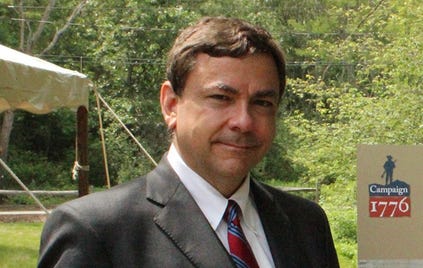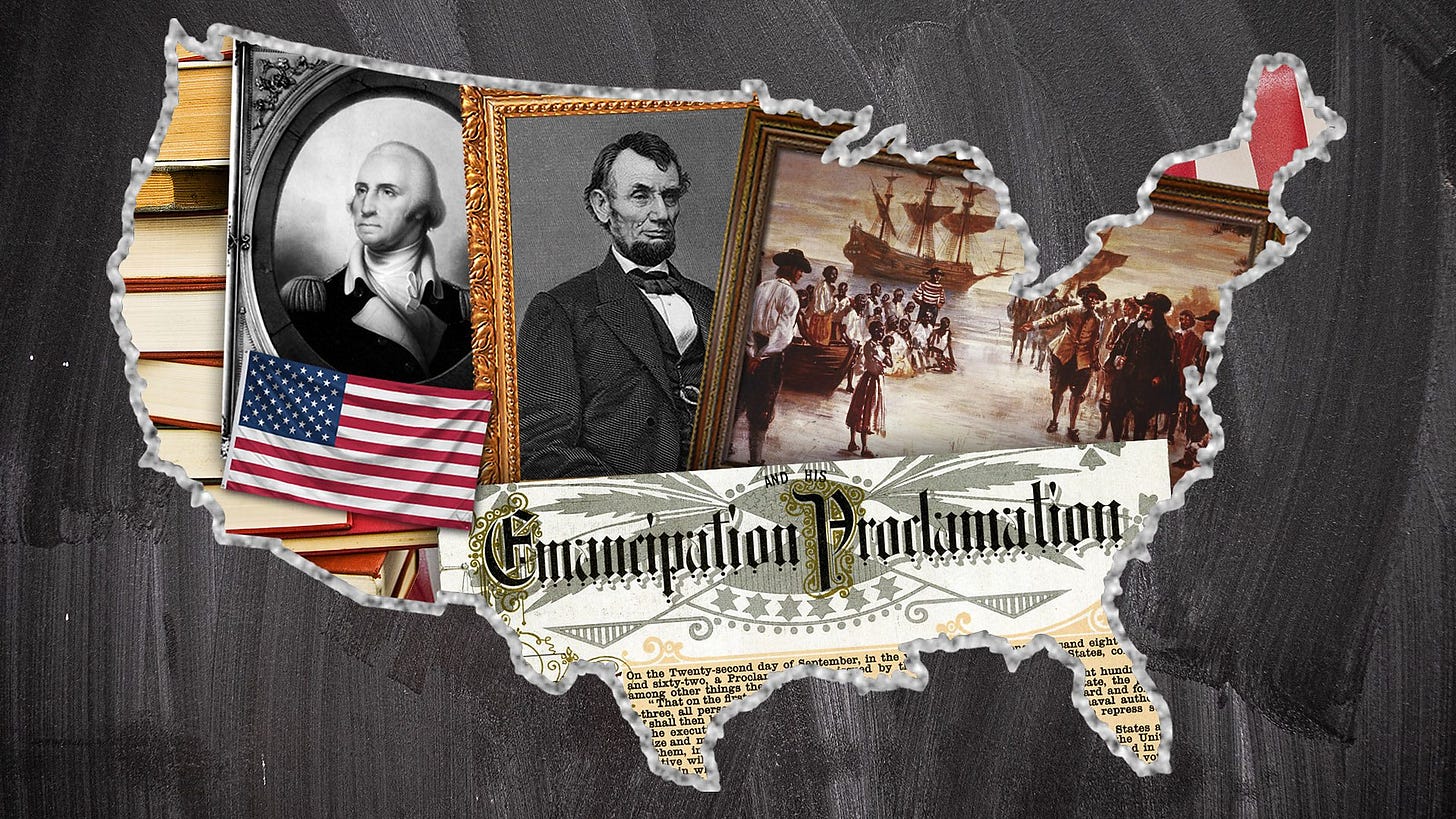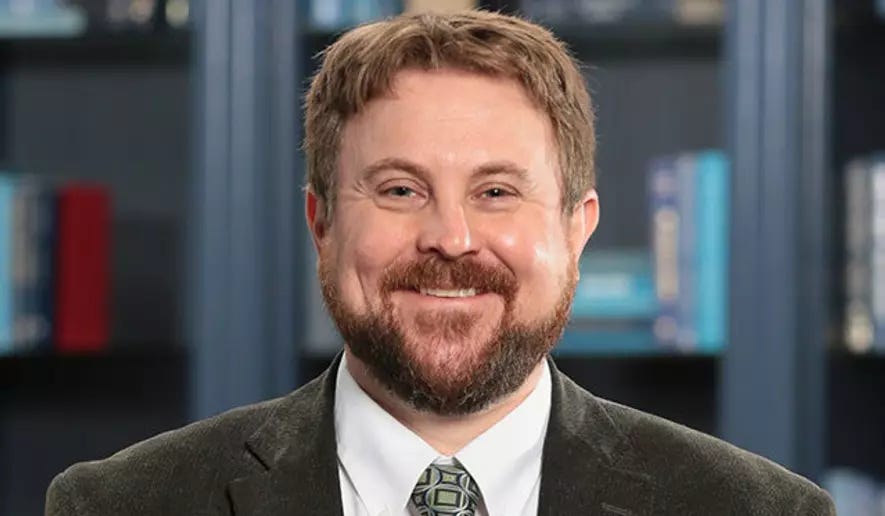Firm foundation
FreeCon scholars chronicle the origins of American liberty and self-government
However you consume your news or follow today’s most-contentious political debates, you’ll regularly encounter Freedom Conservatives making the case for individual liberty, free enterprise, decentralized government, the rule of law, and the protection of civil society from encroachment by the state.
During the past week alone, prominent FreeCons to the pages of The Washington Post to explain the follies of protectionism, The Wall Street Journal to urge the Trump administration to set clearer domestic priorities, the Los Angeles Times to decry the decline of congressional power, and National Review to credit President Trump and Benjamin Netanyahu for the emerging peace deal in Gaza.
Not all FreeCons comment on breaking news, however, or focus their efforts on current controversies. Among our hundreds of signatories are historians, philosophers, social scientists, and other scholars who explore timeless truths and how they’ve shaped American culture, communities, and politics.
Today we feature Freedom Conservatives whose work has helped to establish a firm foundation for our movement.
Living legacies
Jack Warren is editor-in-chief of The American Crisis, published by the Foundation for American Ideals. He’s also a FreeCon signatory.
An historian of American public life, he has served as an editor of George Washington’s papers, author of The Presidency of George Washington (1996), and founding director of the American Revolution Institute of the Society of the Cincinnati.
He’s published scores of scholarly and popular articles in print and online journals. His most recent book is Freedom: The Enduring Importance of the American Revolution (2023).
In a recent essay for American Heritage, Warren explored the continuing influence of the American Revolution.
It “laid the foundation of a free society,” he wrote. “It did not destroy all existing inequalities, but it opened new opportunities for millions of Americans, including unprecedented chances to participate in public life.”
Warren observed that the country’s leaders “framed constitutions for their government based on the idea of natural rights, which were defined and protected by constitutional law. They created a nation dedicated not to the interests of kings and aristocrats but to the interests of ordinary people.”
“Our independence, our republic, our national identity, and our commitment to the high ideals that form the basis of our public life are not simply the consequences of the revolution, to be embalmed in our history books. They are living legacies of that revolution, more important now, as we face the challenges of a world demanding change, than ever before.”
“Without understanding them, we find our history incomprehensible, our present confused, and our future dark.”
Politicized history
Edward S. Shapiro is an emeritus professor of history at Seton Hall University and a FreeCon signatory.
Shapiro’s books include Clio From the Right: Essays Of A Conservative Historian (1983, A Time for Healing, American Jewry since World War II (1992), Letters of Sidney Hook: Democracy, Communism and the Cold War (1995), and A Unique People in a Unique Land: Essays on American Jewish History (2022).
In a recent book review for the journal Academic Questions, he observed that even as enrollments in history courses decline and newly minted historians have trouble finding campus jobs, “the public continues to have an intense interest in history in general and American history in particular.”
Some of the wounds suffered by the discipline are self-inflicted, Shapiro wrote.
“If one is looking for reasons why over the last forty-five years the number of history majors at Harvard has declined from around 150 to under fifty, with similar declines afflicting Columbia, Swarthmore, Williams, Wellesley, and other elite institutions,” he argued, it’s “a good bet that the politicization of the historical record” has “played a prominent role.”
“There is little that threatens the credibility of history or undermines its popularity more than when its practitioners are seen to have political axes to grind. This transforms history into propaganda. And since the reading public contains people with diverse political outlooks, the appeal of any politicized history will necessarily be limited.”
Reviving the academic discipline will require recruiting and training teachers and professors “committed to valuing history for its own sake,” Shapiro wrote, “rather than using the classroom to spread the latest political orthodoxy.”
Authentic flourishing
Jordan J. Ballor serves as executive director of First Liberty’s Center for Religion, Culture & Democracy. He is also a FreeCon signatory.
A senior research fellow at the Henry Institute for the Study of Christianity and Politics at Calvin University, Ballor previously held research positions at the Acton Institute and Vrije Universiteit Amsterdam.
He has authored or edited multiple books, including Theology, Morality and Adam Smith (2022) and the 12-volume Abraham Kuyper Collected Works in Public Theology.
In a recent Washington Times op-ed, Ballor argued that limiting the power of government allows other institutions to perform their essential roles, promoting “authentic human flourishing.”
“The family is instituted to be the primary place of procreation and nurture of the next generation,” he wrote. “The church is where the sacraments are celebrated and the gospel is proclaimed. The government is where the coercive power is instituted to promote justice and protect rights. And the marketplace is where human beings organize and exchange to provide goods and services to others.”
“Each of these orders — as well as all the innumerable other institutions and spheres, such as schools and little leagues — has its own ordering principle, its own purpose and its own authority.”
In the mix
• In The American Enterprise, FreeCon signatory Jay Cost pointed out that “America’s founders saw Congress as the first branch of the government,” so attempts to empower the presidency or the judiciary at its expense are fraught with peril.
“By centralizing authority so heavily, the United States has rejected a fundamental governing principle upon which it was originally founded: the separation of powers,” wrote Cost, a senior fellow at the American Enterprise Institute and visiting scholar at Grove City College.
“We the people should take seriously the necessity of a Congress that reflects the public will and strives earnestly to implement it. That means, at a bare minimum, we should elect people capable of wielding such power, rather than the petty strivers and ideological bomb throwers who make up so much of Congress today.”
• At National Review Online, FreeCon signatory Andrea Picciotti-Bayer argued that Colorado policymakers are using a “taxpayer-funded universal preschool program to force gender ideology on children as young as three and four, while pushing Catholic and other Christian preschools to the margins.”
“Parents who want a preschool aligned with their faith face a terrible choice: compromise conscience or forgo access to public programs,” wrote Picciotti-Bayer, director of the Conscience Project and a legal analyst for EWTN News.
“Faith-based schools and families must not be excluded from public programs simply because their beliefs about sexual orientation or gender identity differ from the state’s preferred orthodoxy.”
• In The Wall Street Journal, FreeCon signatory Patrick Brenner argued that the 30-year mortgage drives up prices, sucks up wealth, makes it hard for millennials to buy homes, and is a creature of government subsidy.
“For generations, lenders, regulators and politicians have normalized a system that drains family wealth under the guise of opportunity,” wrote Brenner, president of the Southwest Public Policy Institute. “Until Americans demand honesty, the scam will continue — and homeownership will remain a dream sold on indebted servitude.”



